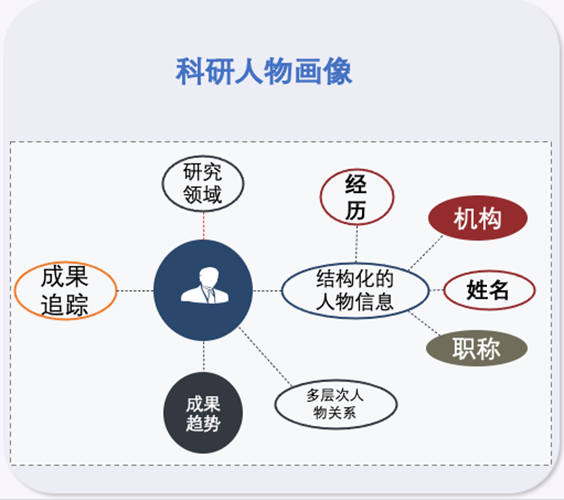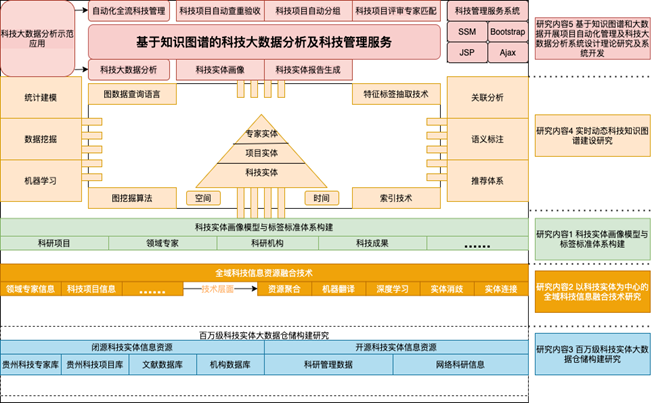As technological data becomes increasingly multi-source, heterogeneous, and dynamically evolving, traditional knowledge management systems face challenges such as insufficient mining of entity relationships, delayed knowledge updates, and low cross-domain collaboration efficiency. To address these issues, this project proposes a technology knowledge management platform based on knowledge graphs, focusing on the full lifecycle management of technological entities. The platform constructs a multi-granularity ontology framework for technology entity profiling and tagging systems, integrating expert rules and deep learning to dynamically tag institutions, talents, and achievements. It leverages comprehensive technology information fusion techniques to integrate multi-source heterogeneous data from patents, papers, and projects, overcoming challenges in cross-modal semantic alignment and spatiotemporal association mapping. A distributed graph database enables efficient storage and dynamic scalability for billions of triplets, while stream computing and incremental learning technologies support real-time dynamic updates and reasoning of the knowledge graph within minutes. The project innovatively proposes a cross-modal technology entity disambiguation algorithm, combining knowledge embedding and graph attention mechanisms to resolve ambiguities in entities with the same name. It also develops a dynamic multi-dimensional tag reorganization engine, optimizing the tagging system through semantic networks and probabilistic graph models. Additionally, it introduces a spatiotemporal fusion framework for comprehensive technology information, integrating BERT-BiLSTM-CRF joint extraction models and knowledge distillation technology to enhance fine-grained relationship extraction accuracy. Research results show that the accuracy of technology entity extraction and fusion reaches 90%, with related classification, recommendation, and association algorithms achieving over 90% accuracy. These findings provide precise and dynamic knowledge support for applications such as technology policy formulation and technical route planning.


